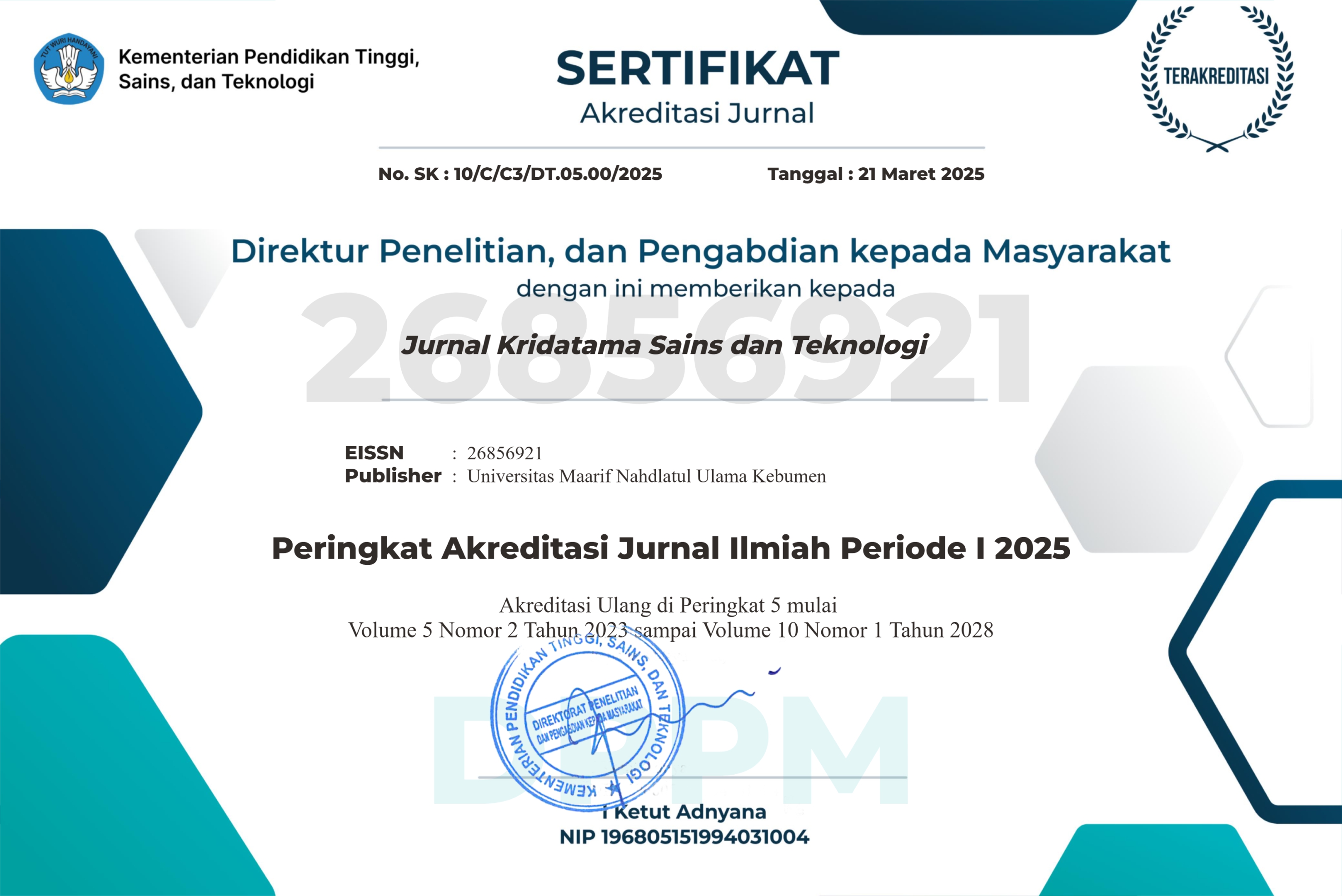Employee Engagement, Organizational Citizenship Behavior, dan Supervisi Akademik dalam Peningkatan Kinerja Guru di Sekolah Dasar
DOI:
https://doi.org/10.53863/kst.v5i02.912Keywords:
Teacher, Performance, ImprovementAbstract
Employee engagement in the modern era like now is an important problem because of advances in information technology which is also followed by a change in human generation which is dominated by the millennial generation (generation Y) who have different characteristics and attitudes from previous generations (generation baby boomers and generation X). . The purpose of this study was to determine the effect of academic supervision, employee engagement, and Organizational Citizenship Behavior on increasing teacher effectiveness. with the results being very important for improving the quality of teacher performance in Indonesia. The method used is quantitative, namely research based on the philosophy of positivism is used to study certain populations or samples, the sampling method is usually random, research instruments are used in data collection, data analysis is quantitative/statistical in nature and aims to test established hypotheses. The final results of the study illustrate that Academic supervision has no significant effect on teacher effectiveness, staff placement does not have a significant effect on teacher effectiveness. This shows that employee engagement cannot be used as a variable to improve teacher performance, Organizational Citizenship Behavior (OCB) has a significant effect on teacher performance. This shows that Organizational Citizenship Behavior (OCB) can be used as a tool to improve teacher performance, and Academic Supervision, Employee Engagement and Organizational Citizenship Behavior (OCB) together have a significant effect on teacher performance.
Keywords: Teacher, Performance, Improvement
References
Abdullah, M. Ma’ruf. 2015. Metodologi Penelitian Kuantitatif. Yogyakarta : Aswaja Pressindo
Asf Jasmani dan Syaiful Mustofa. 2013. Supervisi Pendidikan: Terobosan Baru dalam Kinerja Peningkatan Kerja Pengawas Sekolah dan Guru. Jogjakarta: Ar-Ruzz Media
Azharuddin, A. (2020). PERAN DAN FUNGSI KEPALA SEKOLAH DALAM MENINGKATKAN KOMPETENSI GURU. Jurnal Islam Hamzah Fansuri, 3(2).
Bungin, Burhan. 2018. Metodologi Penelitian Kuantitatif: Komunikasi, Ekonomi, dan Kebijakan Publik serta Ilmu-Ilmu Sosial Lainnya, Edisi Kedua. Depok: Prenadamedia Group
Bolino, M.C., Turnley, W.H., dan Bloodgood, J.M. ( 2002). “Citizenship Behavior and the Creation of Social Capital in Organization”. Academy of Management Journal, Vol. 7, No. 4, 2002 pp. 502 – 522
Darma, Khairina. Jurnal Pengaruh Kepemimpinan Sekolah terhadap Kinerja Guru di Sekolah
Echdar, Saban. 2017. Metodologi Penelitian Manajemen dan Bisnis. Bogor: Ghalia Indonesia
Fathurrohman, Pupuh. 2011. Supervisi Pendidikan dalam Pengembangan Proses Pengajaran. Bandung: Refika Aditama
Ghozali, Imam. 2005. Aplikasi Analisis Multivariate Dengan Program SPSS. Semarang: Badan Penerbit Universitas Diponegoro.
Imron, Ali. 2011. Supervisi Pembelajaran Tingkat Satuan Pendidikan. Jakarta: Bumi Aksara
Lembaga Pengembangan dan Pemberdayaan Kepala Sekolah. 2011. Supervisi Akademik. LPPKS Indonesia
Lewiuci, P. G., Mustamu, R. H. 2016. Pengaruh Employee Engagement terhadap Kinerja Karyawan pada Perusahaan Keluarga Senapan Angin. AGORA Vol. 4, No. 2.
Mangkunegara, Anwar Prabu. 2000. Manajemen Sumber Daya Manusia. Bandung: Rosda Karya
Mufidah, Luk-luk Nur. 2009. Supervisi Pendidikan. Yogyakarta : Teras, 2009
Syukur, Fatah. 2012. Manajemen Sumber Daya Manusia Pendidikan. Semarang : PT Pustaka Rizki Putra
Mulyasa. 2012. Manajemen dan Kepemimpinan Kepala Sekolah. Jakarta: Bumi Aksara
Mulyasa. 2014. Guru dalam Implementasi Kurikulum 2013. Bandung: PT Remaja Rosdakarya
Pidarta, Made. 2009. Supervisi Penidikan Kontekstual. Jakarta: Rineka Cipta
Pramesti, Getut. 2017. Statistika Penelitian dengan SPSS 24. Jakarta: Elex Media Kamputindo
Prasetyo, Bambang. 2005. Metode Penelitian Kuantitatif. Jakarta : Raja Grafindo
Priyatno, Duwi. 2018. SPSS Panduan Mudah Olah Data bagi Mahasiswa dan Umum. Yogyakarta: Andi
Purwanto, Ngalim. 2012. Administrasi dan Supervisi Pendidikan (21thed). Bandung: Remaja Rosdakarya
Riduwan. 2009. Pengantar Statistika Sosial. Bandung : Alfabeta
Robbins, S.P. 2006. Perilaku Organisasi Edisi Lengkap. Jakarta: PT INDEKS Kelompok GRAMEDIA
R. P. Shama, D. N. Gaind. 1996. Education and Secondary School Administration. Califonia: Ram Prasad
Sagala, Syaiful. 2012. Supervisi Pembelajaran dalam Profesi Pendidikan. Bandung: Alfabeta
Shabbir, J. Iqbal, M. S., Zameer, H., Khan, I. A., & Sandhu, M. A. (2017). Antecedents and Consequences of Employee Engagement: Evidence from Corporate Sector of Pakistan. Paradigms: A Research Journal of Commerce, Economics, and Social Science. Vol. 11, No. 1 Page 78-86.
Simamora, Henry. 2000. Manajemen Sumber Daya Manusia., (Yogyakarta: Bagian Penerbitan STIE YKPN
Sugiyono. 2012. Metode Penelitian Kombinasi. Bandung : Alfabeta
Sugiyono. 2012. Metode Penelitian Pendidikan Pendekatan Kuantitatif Kualitatif dan R&D. Bandung : Alfabeta
Sulistyorini, Muhammad Fathurrohman. 2012. Meretas PendidikanBerkualitas dalam Pendidikan Islam. Yogyakarta: Teras
Sutomo. 2011. Manajemen Sekolah. Semarang: Universitas Negeri Semarang Press
Sutrisno, Edy. 2004. Manajemen Sumber Daya Manusia. Jakarta: Kencana.
Syukur, Fatah. 2012. Manajemen Sumber Daya Manusia Pendidikan. Semarang : PT Pustaka Rizki Putra
Zakiyah. 2019. Pengaruh Kepemimpinan Kepala Sekolah, Kinerja Guru, dan Media pembelajaran terhadap Prestasi Peserta Didik. Kebumen : IAINU Kebumen
Zurasaka, A. 2008. Teori Perilaku Organisasi. http://zurasaka.wordpress.com /2008/11 /25/perilaku-organisasi. Diakses tanggal 03 Desember 2020
Downloads
Published
How to Cite
Issue
Section
License
Copyright (c) 2023 Imam Satibi

This work is licensed under a Creative Commons Attribution-ShareAlike 4.0 International License.
Authors retain copyright and grant the journal right of first publication with the work simultaneously licensed under a Creative Commons Attribution-ShareAlike 4.0 International License that allows others to share the work with an acknowledgment of the work’s authorship and initial publication in this journal

















